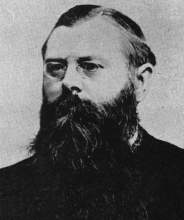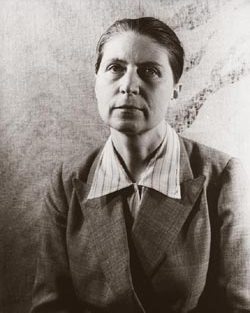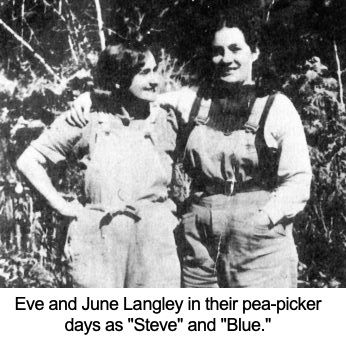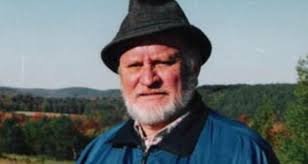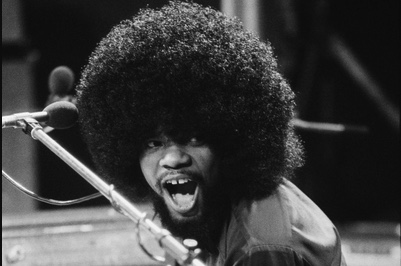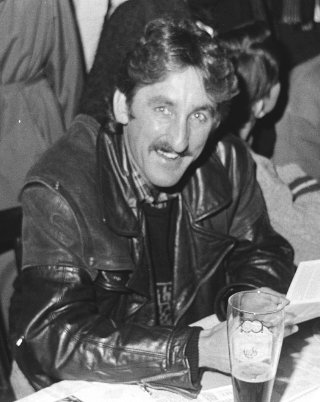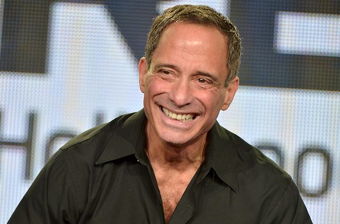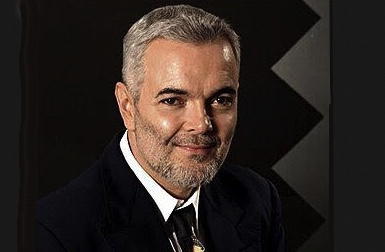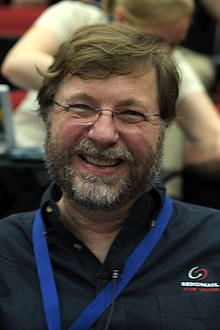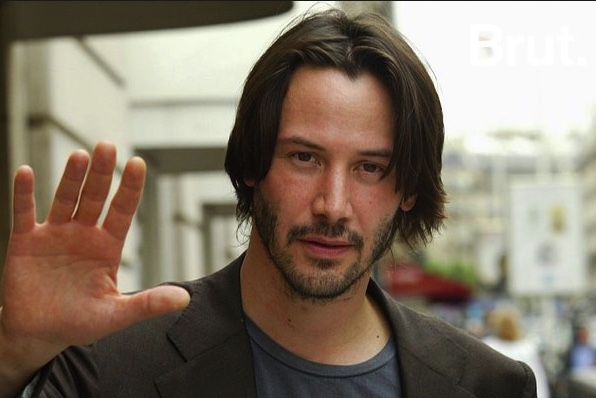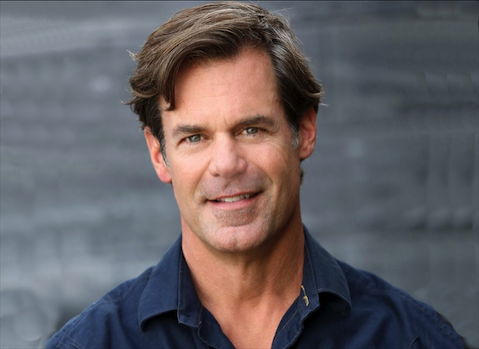|
presents THIS DAY IN GAY HISTORY based on: The White Crane Institute's 'Gay Wisdom', Gay Birthdays, Gay For Today, Famous GLBT, glbt-Gay Encylopedia, Today in Gay History, Wikipedia, and more …
Collected by Ted September 2 [{(o)}]|[{(o)}]|[{(o)}]|[{(o)}]| [{(o)}]|[{(o)}]
1853 – Ferdinand Karsch-Haack (d.1936) was a German entomologist. His most significant contribution to the sexual emancipation movement in Germany consisted of demonstrating the occurrence of same-sex sexual activity throughout the animal kingdom, among the so-called primitive peoples, and in all non-Western cultures. His zoological and ethno-historical arguments were intended to enable a deeper understanding of human sexual diversity and to promote the acceptability of same-sex love in Western societies. Although the sexual emancipation movement became increasingly divided between a group centered around Magnus Hirschfeld and the Scientific-Humanitarian Committee and another with more elitist aspirations known as "Die Eigenen," both groups recognized the intrinsic merits of Karsch-Haack's work and were eager to publish his essays in their journals. He is depicted, along with Richard von Krafft-Ebing, Magnus Hirschfeld, and Havelock Ellis, as one of the "great authorities" in the area of sexual science in the book Homosexuelle Probleme [Homosexual Problems] (1902) by Ludwig E. West. Ferdinand Karsch-Haack was born on September 2, 1853 in Münster, a city in northwestern Germany, the son of a physician. He pursued advanced education in Berlin, where he presented his dissertation on the gallwasp in 1877. Eventually, he was named "Privatdozent" for Zoology and became Curator at the Zoological Museum of the Friedrich-Wilhelm University in Berlin. Despite being an entomologist by profession, Karsch-Haack was best known for his ethnological and cultural treatises on same-sex love and for his critical studies of homosexual personalities in European history. Karsch lived his later life as an open homosexual in Berlin. The rise of Hitler to power and Nazi repression of homosexuality led to the eclipse of his reputation. In 1933, the year Hitler seized power, Karsch-Haack published his last important essay, "Die Liebschaften des Prinzen Heinrich, Bruder Friedrichs des Grossen" [The love affairs of Prince Heinrich, Brother of Frederick the Great]. He died three years later, on December 20, 1936. The most significant writings by Karsch-Haack may be read as a twofold reply to the typical objection that same-sex love is the regrettable product of "overcultivation" or excessive civilization. Karsch-Haack contended that homosexualty is not a product of civilized refinement, but a phenomenon frequently observable at different levels of animal evolution, and disputed the unwarranted assumption that homosexuality is absent from the animal kingdom. In time, Karsch-Haack amplified the scope of his argument to include the sexual complexities of the plant world. Not surprisingly, he underscored in his later work the idea that human homosexuality is grounded in a "natural disposition", which humans share with other complex life forms.
1894 – The novelist, poet, memoirist, and magazine editor known as Bryher was born on this date (d.1983). Born Annie Winifred Ellerman in Margate, England to a shipowner and financier father who at the time of his death in 1933 was the richest Englishman who had ever lived. So Bryher didn't have to worry about money the rest of her life. She traveled in Europe as a child, to France, Italy and Egypt. At the age of fourteen she was enrolled in a traditional English boarding school and at around this time her mother and father married. On one of her travels, Ellerman journeyed to the Isles of Scilly off the southwestern coast of Great Britain and acquired her future pseudonym from her favourite island, Bryher. During the 1920s, Bryher was an unconventional figure in Paris. Among her circle of friends were Ernest Hemingway, James Joyce, Gertrude Stein, Sylvia Beach and Berenice Abbott. Her wealth enabled her to give financial support to struggling writers, including Joyce and Edith Sitwell. She also helped with finance for Sylvia Beach's bookshop Shakespeare and Company and certain publishing ventures, and started a film company POOL Productions. She also helped provide funds to purchase a flat in Paris for the destitute Dada artist and writer Baroness Elsa von Freytag-Loringhoven. Bryher knew from an early age that she was lesbian. In 1918 she met and became involved in a lesbian relationship with poet Hilda Doolittle (better known by her initials, H.D.). The relationship was an open one, with both taking other partners. In 1921 she entered into a marriage of convenience with the American author Robert McAlmon, whom she divorced in 1927. That same year she married Kenneth MacPherson, a writer who shared her interest in film and who was at the same time H.D.'s lover. In Burier, Switzerland, overlooking Lake Geneva, the couple built a Bauhaus-style style structure that doubled as a home and film studio, which they named Kenwin. They formally adopted H.D.'s young daughter, Perdita. In 1928, H.D. became pregnant with Macpherson's child, but chose to abort the pregnancy. Bryher divorced MacPherson in 1947. She and Doolittle no longer lived together after 1946, but continued their relationship until Doolittle's death in 1961.
1904 – Eve Langley was an Australian writer and poet born on this date (d.1974) in at a cattle station in New South Wales in 1904. Her father was an itinerant farm worker who died when Eve was still a girl, and her mother raised Eve and her sister June while managing a small hotel in Crossover, a small town in Victoria. Although Eve's education was incomplete, she was "a precocious and omniverous reader, a weaver of tales, a haunter of libraries." By the time she was 20, one of her favorite amusements was to imagine herself the incarnation of some great writer she had been reading, such as John Keats or Francois Rabelais. Eve herself only half-jokingly referred to her reading as a medical treatment: "My early arnicas of Mathew Arnold, small balsams of Wilde, Rabelaisian cauterizers, Shavian foments and Shakespearean liniments." She had also formed an extravagant passion for Gippsland, the rural area of Victoria where her mother had been raised, and in 1924, she convinced her sister June to head out with her for Gippsland in hopes of getting work picking peas. "Now that we're going to Gippsland, we said, we must put off our feminine names for ever," declares the narrator in The Pea Pickers. And, as in the book, Eve and June dressed up in men's overalls and took to calling themselves "Steve" and "Blue." Over the next four years, Steve and Blue made annual trips to Gippsland during the growing season, traveling from farm to farm, living in tents and earning poverty wages hoeing and picking crops. For Langley, the experience seems to have been more like a personal transformation than a youthful adventure. "At some part of the journey, my hereditary Gippsland mind awoke. It was a totally different apparatus to my Dandenongian mind," she would later write in The Pea Pickers (Dandenong being the fictional stand-in for Crossover). Eve tried to make a go as a farmer herself, but was too likely to become diverted by her reading and writing to keep a successful crop going. In 1932, she moved to Auckland, New Zealand, where June and her mother had settled. She began getting poems published in literary magazines, but also had a disastrous affair with an Italian car salesman that resulted Eve becoming pregnant and giving the child up for adoption. Several years later, she became infatuated with an artist named Hilary Clark. Clark was eleven years younger than her and more interested in men than women, but the two ended up marrying and Eve had three children by him over the next four years. (Their names were Bisi Arilev, Langley Rhaviley and Karl Marx.) They were separated and she was keeping the first two children in squalid conditions and pregnant with the third when she began writing The Pea Pickers. She typed it on cheap paper a friend had given her and couldn't afford to buy a new ribbon when the text began to be illegible. Nevertheless, she finished the book and mailed it off to Sydney as an entry for the S. H. Prior Memorial Prize competition. Not all the judges were impressed, however, and in the end, the prize for 1940 was split three ways between The Pea Pickers, Kylie Tennant's novel, The Battlers, and a biography of an early governor of New South Wales, Lachlan Macquarie: His Life, Adventures and Times, by M. H. Ellis. Angus and Robertson took the rights to publish Langley's novel, but a great deal of editing was required to get the material into publishable shape. They also sold the U. S. rights to by Dutton, which didn't publish it until 1945, as Not Yet the Moon. In her latter years she became extremely reclusive, living in a shack in the Katoomba bush in the Blue Mountains. She became increasingly eccentric, wearing 'mannish clothes' and a white topi and always wore a knife in her belt. Dale Spender writes that much has been written of her eccentricities, such as the wearing of trousers, and says that "it is distressing to find that sometimes there is more comment about her eccentricities as a person than about the strengths of her writing". Langley claimed Oscar Wilde as her alter ego, going so far as to officially take that name by deed poll in 1954. Her work presents many clues to her enigmatic life. The manuscripts of ten of her unpublished novels are held among her papers in the Mitchell Library. Hal Porter wrote in 1965 about many of the writers he had met, and said that "of them all, Eve Langley is the one with whom, on a first meeting, I spent the most dazzling day, enlivened by the unforeseen". She spent the last years of her life living alone in the Blue Mountains. She died alone at home sometime between 1 and 13 June, but her body was not found until about 3 weeks after her death.
She was born Evelyn Gentry in Nebraska, and grew up in Colorado. After earning her B. A. at the University of Colorado, she earned her doctorate at the Johns Hopkins University in 1932. Hooker accepted a position as research associate in experimental and physiological psychology at the University of California, Los Angeles, where she would spend the rest of her career. At UCLA, she also became friends with several gay men, who in turn introduced her and her husband to other gay men, among whom were people from a wide variety of professions and backgrounds, including professors, writers, engineers, artists, salesmen, and others. One of these friends, Sam Fromm, who had been one of her students, urged her to study a nonclinical population of homosexuals. "It is your scientific duty," he told her, "to study people like us, homosexuals who function very well and don't go to psychiatrists." Hooker's neighbor and friend, writer Christopher Isherwood, also encouraged her and provided further entree into Los Angeles's gay male community. Taking her friends' advice, Hooker devoted herself to the study of stable, occupationally successful homosexuals. In 1954, she received a grant from the National Institute for Mental Health, which led to a breakthrough study, published in 1957. This study, featuring empirical research on non-clinical gay males, was the first of its kind. It called into question the diagnoses of adjustment disorders in homosexual persons, as well as the objectivity of social scientists. Hooker's friends had dared her to subject them to the standard psychological exams so as to determine whether conventional wisdom regarding the degeneracy of homosexuality was true. She administered three personality tests, including the Rorshach ink-blot test, to thirty pairs of men—one homosexual, one not—matched by IQ level, age, and other factors. These tests were accepted by the community of medical and mental health professionals as indicating the presence of emotional and mental disorders. Presumably, homosexual persons would be easy to differentiate owing to the presence of pathology. Hooker turned the results of the tests over to a panel of three prominent experts, asking them to diagnose which of the sixty men had a psychiatric disorder, as revealed by the test. She further asked these experts to determine which of the men in each pair was homosexual, not having indicated beforehand that any might be, or the ulterior motive behind this research. The experts concluded that the gay males were no worse, and sometimes better adjusted than the rest, and proved unable to identify correctly the gay male in each pair. On its face, this research suggested that the assumption that homosexuals were necessarily psychiatrically disordered is erroneous; what is more, it suggested that such diagnoses of disorder may be based not on objective fact, but, instead, may be grounded in popular stereotype. Hooker concluded from her research that the patterns of homosexuality are as varied and as complex as those of heterosexuality, and that one cannot assume that homosexuals can be easily distinguished from heterosexuals on the basis of emotional and psychological adjustment. At the height of her career, Hooker was appointed the Chair of the National Institute of Mental Health's Task Force on Homosexuality in 1967, which issued a major report in 1969. This report, which was severely critical of attempts to "treat" homosexuality, placed great emphasis on the need to end social discrimination against homosexuals. It ultimately led to the rescinding of homosexuality from the American Psychiatric Association's Diagnostic and Statistical Manual of Psychiatric Disorders in 1973, a move followed by the American Psychological Association in 1975. Hooker retired from UCLA in 1970. She continued in private practice in Santa Monica for some years after her retirement. She died on November 18, 1996, in Los Angeles. In her last years, Hooker was recognized by gay men and lesbians for the work she did in lifting the stigma of mental illness from them. Richard Schmeichen's acclaimed documentary, Changing Our Minds: The Story of Dr. Evelyn Hooker (1991), helped bring her contributions to a wider public.
1925 – John J. McNeill was ordained as a Jesuit priest in 1959 and was a psychotherapist and an academic theologian, with a particular reputation within the field of Queer Theology (d.2015). He is best known for his books, The Church and the Homosexual, and Taking a Chance on God: Liberating Theology for Gays, Lesbians, and their Lovers, Families and Friends. John McNeill was born in Buffalo, New York. After enlisting in the U.S. Army during World War II at the age of seventeen, McNeill served in combat in the Third Army under General Patton and was captured in Germany in 1944. McNeill spent six months as a POW (Prisoner of War) until he was liberated in May of 1945. John enrolled in Canisius College in Buffalo after his discharge from the army and, upon graduating, entered the Society of Jesus in 1948. He was ordained a Jesuit priest in 1959. For more than 30 years, John J. McNeill, an ordained priest and psychotherapist, devoted his life to spreading the news of God's love for lesbian and gay Christians. One year after the publication of The Church and the Homosexual (1976), McNeill received an order from the Congregation for the Doctrine of the Faith in the Vatican ordering him to silence in the public media. He observed the silence for nine years while continuing a private ministry to gays and lesbians which included psychotherapy, workshops, lectures and retreats. In 1988, he received a further order from Cardinal Ratzinger directing him to give up all ministry to gay persons which he refused to do in conscience. As a result, he was expelled by the Vatican from the Society of Jesus (Jesuits) for challenging the teachings of the Roman Catholic Church on the issue of homosexuality, and for refusing to give up his ministry and psychotherapy practice to gay men and lesbians. McNeill had been a Jesuit for nearly 40 years. McNeill was the guest of honor at the 2011 Europride, invited by Nuova proposta in Rome to attend the premiere screening of the documentary film about his life, Taking a Chance on God, by director Brendan Fay. 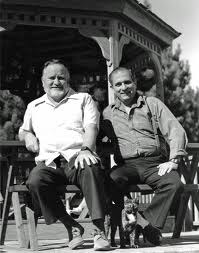 McNeill with Charles Chiarelli In his later years, before he died in 2015, McNeill moved on a wheelchair, accompanied by his husband, Charles Chiarelli (They met 1965 at the St. Charles gay bar in Toronto and married in Canada). "He has been for forty-five years at my side," said McNeill. "I thank God every day for the blessing of Charles in my life. Without his presence, my ministry with gay people would not have been possible. Charles has prepared and proofread all of my books, taught me how to use the computer and still helps me to maintain a balance with his biting sense of humor."
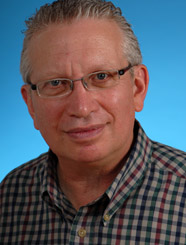
1943 – Joe Loundy is a retired social worker and travel agent who has been a volunteer at numerous gay groups since the 1970s. He was a volunteer with the Gay Professional Coalition of Chicago, Gay Horizons, Lavender University of Chicago (which he co-founded) , and more. Joseph Goodman Loundy was born in Chicago, Illinois. He received a BA in Philosophy in August 1966 from Roosevelt University and an MA in Social Work from the University of Chicago, School of Social Service Administration in June, 1969. He began his affiliation with Gay Horizons in the mid-1970s as a supervisor in the Gay Peoples Peer Counseling Service Program, the only gay-identified, gay-affirmative counseling program in Chicago at that time. He was the first mental health professional to be involved. During a 10-year period he successively volunteered in the positons of Co-Director of the Peer Counseling Program, Board Chariperson and Executive Director. During his involvement with Gay Horizons, Loundy was instrumental in the growth of the agency from two programs with 30 volunteers to ten programs with 170 volunteers. He initiated the move of Gay Horizons and the Rodde Board. He resigned from Gay Horizons in 1985, when he became a travel agent at Envoy Travel. He returned to Horizons Community Services in 1991; and remained actively involved with Horizons until 1997 (Gay Horizons changed its name to Horizons Community Services in 1986). He established the Group Services Program which offered a variety of groups but most notably Coming Out Groups which helped participants reframe their gay feelings as a normal variation and ‘coming out’ as a normal developmental stage. This program continues to this day.
1946 – (William Everett) Billy Preston (d.2006) was an American musician whose work included R&B, rock, soul, funk and gospel. Preston became famous first as a session musician with artists including Little Richard, Sam Cooke, Ray Charles and the Beatles, and was later successful as a solo artist with hit pop singles including "Outa-Space", its sequel, "Space Race", "Will It Go Round in Circles" and "Nothing from Nothing", and a string of albums and guest appearances with Eric Clapton, the Red Hot Chili Peppers and others. In addition, Preston was co-author, with The Beach Boys' Dennis Wilson, of "You Are So Beautiful," recorded by Preston and later a #5 hit for Joe Cocker. Alongside Tony Sheridan, Billy Preston was the only other musician to be credited on a Beatles recording: the artists on the number-one hit "Get Back" are given as "The Beatles with Billy Preston". Stephen Stills asked Preston if he could use Preston's phrase "if you can't be with the one you love, love the one you're with" and created the hit song. William Everett Preston was born on September 2, 1946, in Houston, Texas. When he was three, the family moved to Los Angeles where Preston began playing piano while sitting on his mother Robbie's lap. Noted as a child prodigy, by the age of ten, Preston was playing organ onstage backing several gospel singers such as Mahalia Jackson, James Cleveland and Andrae Crouch. At twelve, he appeared in the W.C. Handy biopic starring Nat King Cole entitled, St. Louis Blues, playing W.C. Handy at a younger age. A year prior, Preston appeared on Cole's national TV show singing the Fats Domino hit, "Blueberry Hill". In 1962, Preston joined Little Richard's band as an organist and it was while performing in Hamburg that Preston met the Beatles. In 1963 he played the organ on Sam Cooke's Night Beat album and released his debut album, 16 Yr Old Soul, that same year for Cooke's SAR Records label. In 1965, he released the album The Most Exciting Organ Ever, and that same year played organ and performed on the rock and roll show, Shindig!. In 1967, he joined Ray Charles' band. Following his exposure with Charles, several musicians began asking Preston to come to sessions, most notably the Beatles, who asked him to contribute to two of their albums, Abbey Road and Let It Be.Preston was an openly gay man but did not speak publicly about his sexuality. He died on June 6, 2006 in Scottsdale, Arizona, of complications of malignant hypertension that resulted in kidney failure and other complications. He had voluntarily entered a drug rehabilitation clinic in Malibu, California, at the suggestion of guitarist Is'real Benton and suffered pericarditis there, leading to respiratory failure that left him in a coma from November 21, 2005.
In a controversial verdict that led to the coining of the legal slang "Twinkie defense," White was convicted of manslaughter rather than murder in the deaths of Milk and Moscone. White served five years of a seven-year prison sentence. Less than two years after his release, he returned to San Francisco and committed suicide. San Francisco Weekly has referred to White as "perhaps the most hated man in San Francisco's history.
1949 – Frank Ripploh was a German actor, film director, and author (d.2002). He is best remembered for his semi-autobiographical 1981 movie Taxi zum Klo. 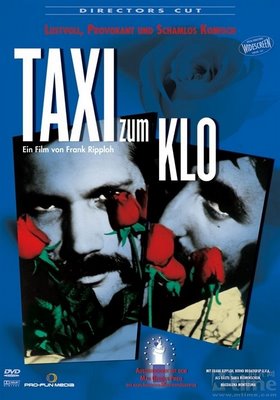 Ripploh also participated in the creation of a small number of other art house films during the 1980s, and had a role in the 1982 movie Querelle. He died of cancer in 2002.
1950 – Harvey Levin is an American television producer, lawyer, legal analyst and a celebrity reporter. He is the founder of celebrity gossip website TMZ.com. He passed the California bar exam in 1975 and was an active attorney in California from December 12, 1975, to January 1, 1996.He worked in various legal roles in the entertainment industry. He was a legal reporter on KCBS-TV in Los Angeles, where he reported on the O.J. Simpson murder trial. In 1996, Levin moved to New York to work as a legal analyst for the 1997 revival of The People's Court. He appeared on the show during the 1980s and the first half of the 1990s as a legal consultant and deactivated his California bar license. He became host of the series in 1998, as well as continuing to serve as its legal analyst. Levin served as creator and executive producer for Celebrity Justice from 2002 to 2005. Levin appeared as a speaker at a fundraising event in West Hollywood, California for the National Lesbian and Gay Journalists Association in April 2010. During the talk, Levin said,
"I'm thinking back a long time when I was starting out as a TV reporter at a local station in LA and I remember at the time - I was probably in my late 20s - and I remember this hell-like fear that if anybody in that newsroom found out that I was gay, that it would be over. I built it up in my head. I was so terrified that somebody would find out." He went on to discuss about how he had to compartmentalize the gay and non-gay parts of his life.
1950 – Mel Odom is an American artist who has created book covers for numerous novels, including a number of paperback editions of the novels of Patrick White, the Australian winner of the Nobel Prize for Literature, and several books by fantasy author Guy Gavriel Kay such as The Fionavar Tapestry trilogy, Tigana, A Song for Arbonne, and The Lions of Al-Rassan. Dreamer, a collection of his work, with an introduction by Edmund White, was published by Penguin Books in 1984. Odom is also the designer of the Gene Marshall collectible fashion doll. Odom was born in Richmond, Virginia, USA, and grew up in Ahoskie, North Carolina, where his parents encouraged his interests in drawing and in dolls. He majored in fashion illustration at Virginia Commonwealth University and then attended Leeds Polytechnic Institute of Art and Design in England for graduate work before moving to New York City in 1975. 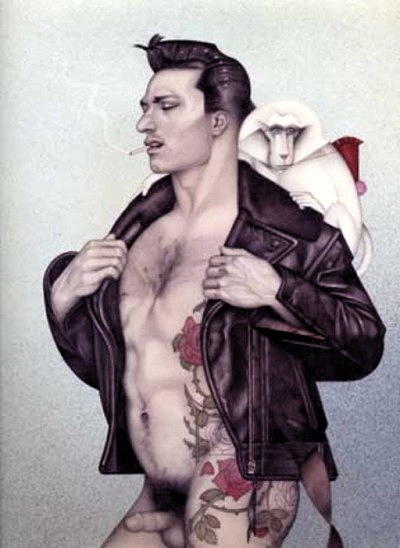 "Hard Stuff" (Click for larger) His Art Deco-like style established him as a commercial artist, at first via erotic illustrations for sexually oriented magazines such as Blueboy, Viva, and Playboy, the last of which named him their "Illustrator of the Year" in 1980. In the same year, he provided the cover art for Edmund White's novel Nocturnes for the King of Naples. 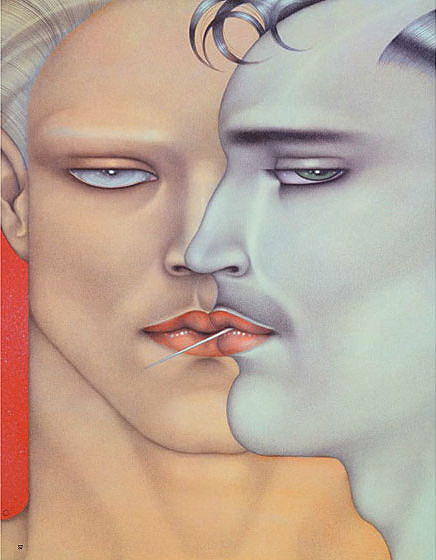 "Mouth to Mouth" for Blueboy Magazine (Click for larger) During the 1980s, his work covered many commercial media. He created album covers for CBS Records and book covers for numerous other novels, usually in the genres of fantasy, mystery, or horror. He provided illustrations for the science/science-fiction magazine OMNI and (in 1989) a front cover for Time magazine. In 1990, Odom proposed to design the cosmetic facepaint for Mdvanii, a 25 cm limited-edition collector's fashion doll. The experience renewed his childhood interest in dolls and led him to create a doll of his own, the 15.5" Gene Marshall. Gene Marshall's appearance, wardrobes, and history are modelled on the glamour of Hollywood's golden age from the 1920s through 1950s. The doll made its commercial debut at the 1995 Toy Fair and was an immediate success, creating a wider market for large, fully articulated collector's fashion dolls in contrast to the slightly smaller and less flexible Barbie doll. Since then, Odom has largely concentrated his professional pursuits on the Gene Marshall doll, regularly modifying her design to create new variations and creating similar companion dolls to share her world, such as Gene's "co-stars" Madra Lord, Violet Waters, and Trent Osborn. Odom continues to attend doll collectors' conventions to make personal appearances and buy dolls for his own collection, as well as to support charitable causes. Of his early friends in the art world, he estimates that two-thirds of them died of AIDS in the 1980s before the awareness and treatment of the disease became better known. At a 1997 doll convention entirely devoted to Gene Marshall, a charity auction of uniquely modified Gene dolls raised more than $30,000 for Gay Men's Health Crisis, an AIDS service organization.
1955 – Eric Allman is an American computer programmer who developed sendmail and its precursor delivermail in the late 1970s and early 1980s at UC Berkeley. Born in El Cerrito, California, Allman knew from an early age that he wanted to work in computing, breaking into his high school's mainframe and later using the UC Berkeley computing center for his computing needs. In 1973, he entered UC Berkeley, just as the Unix operating system began to become popular in academic circles. As the Unix source code was available at Berkeley, the local hackers quickly made many extensions to the AT&T code. One such extension was delivermail, which in 1981 turned into sendmail. As an MTA, it was designed to deliver e-mail over the still relatively small (as compared to today's Internet) ARPANET, which consisted of many smaller networks with vastly differing formats for e-mail headers. Sendmail soon became an important part of the Berkeley Software Distribution (BSD) and continues to be the most widely used MTA on Unix based systems today, despite its somewhat complex configuration syntax and frequent abuse by Internet telemarketing firms. In 1998, Allman founded Sendmail, Inc., headquartered in Emeryville, California, to do proprietary work on improving sendmail. Allman, who is openly gay, lives in Berkeley, California with his partner of more than 30 years, Marshall McKusick. McKusick is a lead developer of BSD; the two first met in graduate school. Allman says:
"There is some sort of perverse pleasure in knowing that it's basically impossible to send a piece of hate mail through the Internet without its being touched by a gay program. That's kind of funny."
Reeves was born in Beirut, Lebanon. His mother was English and his father was a Hawaiian-born American of English, Irish, Portuguese, Hawaiian, and Chinese descent. Reeves's mother was working in Beirut when she met his father. Reeves' father worked as an unskilled. He abandoned his wife and family when Reeves was three years old, and Reeves does not currently have any relationship with him. Reeves moved around the world frequently as a child and he lived with various stepfathers. He grew up primarily in Toronto. Within a span of five years, he attended four different high schools, including the Etobicoke School of the Arts, from which he was later expelled. Reeves stated he was expelled "...because I was greasy and running around a lot. I was just a little too rambunctious and shot my mouth off once too often. I was not generally the most well-oiled machine in the school. I was just getting in their way, I guess." Reeves excelled more in hockey than in academics. He was a successful goalie at one of his high schools (De La Salle College "Oaklands"). While Reeves dreamed of becoming an Olympic hockey player for Canada, an injury ended his hopes for a hockey career. Reeves' first studio movie appearance was in the Rob Lowe ice hockey film Youngblood, in which he played a Québécois goalie. Shortly after, Reeves received a sizable role in the 1986 drama film River's Edge, which depicted how a murder affected a group of teens. Following this film's critical success, he spent the late 1980s appearing in a number of movies aimed at teenage audiences, including Permanent Record, and the unexpectedly successful 1989 comedy, Bill & Ted's Excellent Adventure, which, along with its 1991 sequel, Bill & Ted's Bogus Journey, typecast Reeves as a spaced-out teen. In addition to his film roles, Reeves has also performed in theatre. His performance in the title role in a Manitoba Theatre Centre production of Hamlet was praised by Roger Lewis, the Sunday Times, who declared Reeves " ... one of the top three Hamlets I have seen, for a simple reason: he is Hamlet."Reeves is included here primarlity for his role in My Own Private Idaho, playing a street hustler opposite River Phoenix, his real-life friend. Van Sant based the story in part on the Henry IV cycle, and in part on John Rechy's 1963 novel about street hustlers, City of Night. But he is also included because of the persistent rumors that he is gay, which he neither denies nor affirms. These stories include one which said he is married to David Geffen, based on the fact that Geffen owns a painting with a naked Adam looking very much like Keanu. Another report, now proved to be false, claimed Reeves and actor Alan Cumming (NightCrawler of X-Men 2), married one another before a small party of invited friends in Massachusetts. The report stated "Reeves ... had always been rumored to be gay, but always maintained his heterosexuality. Cumming ... had always been openly bi-sexual, but had never married before."
1966 – Charles Curtis Tuc Watkins is an American actor, known for his roles as David Vickers on One Life to Live and Bob Hunter on Desperate Housewives. Charles Curtis Watkins III was born in Kansas City, Kansas, to Charles Curtis Watkins II, a salesman, and a photographer mother. He attended Indiana University where he majored in communications with a triple minor in theatre, psychology and French. Watkins started his career with guest appearances on various television series including Sisters, Baywatch, and Melrose Place. He portrayed con-man David Vickers on the ABC soap opera One Life to Live from 1994 to 1996, next joining the soap opera General Hospital in the recurring role of Dr. Pierce Dorman from 1996 to 1997. Watkins went on to star as Malcolm Laffley on the Showtime series Beggars and Choosers for its two-season run from 1999 to 2001. In 1999, he made his film debut in I Think I Do, a small budget independent screwball romantic comedy, playing Sterling Scott, the soap opera hunk boyfriend of Bob, played by Alexis Arquette. He followed this with his first appearance in a big studio production, The Mummy as the near-sighted glasses-wearing tomb raider Burns, later guest-starring on television series such as NYPD Blue, Six Feet Under, and CSI: Crime Scene Investigation. After brief appearances in 2001 and 2002, Watkins rejoined the cast of One Life to Live full-time from 2003 through 2006, with several short term returns to the show in 2007, 2008, and 2009, returning again on a regular basis beginning in June 2010. On October 21, 2007, Watkins made his first appearance on ABC's primetime series Desperate Housewives as Bob Hunter, a new resident of Wisteria Lane who is a gay lawyer with a husband. He was a recurring character in seasons 4-6 and a series regular in season seven. Watkins came out as gay on April 26, 2013, in an interview on Marie with Marie Osmond. In that same interview, Watkins announced he had become a single dad in December 2012 by welcoming twins Catchen and Curtis via surrogacy 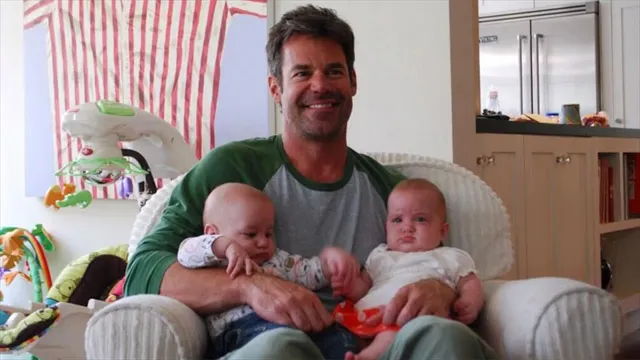 Tuc Watkins, proud daddy Since 2019, he has been in a relationship with actor Andrew Rannells. The two met the year before while playing a couple on the Broadway production of The Boys in the Band. They reprised their roles for Netflix's film version of the show and also worked together on Black Monday in 2020.
1967 – First issue of The Advocate is published. It was a small newspaper under the name The Los Angeles Advocate. The Advocate focuses on news, politics, opinion, and arts and entertainment of interest to lesbians, gay men, bisexuals and transgender (LGBT) people. The magazine is the oldest and largest LGBT publication in the United States and the only surviving one of its kind that was founded before the 1969 Stonewall Riots in New York City.
1976 – Guam passes a new criminal code that includes repeal of its sodomy law.
Operated by the Toronto District School Board at the campus of Oasis Alternative Secondary School, Triangle is the only program of its type in Canada. It was created as an organization in 1995, and launched its first classes in 1996. In conjunction with the LGBT youth organization Supporting Our Youth, Triangle also holds its own annual prom during Toronto's Gay Pride Week. The school day is divided into two halves. For the first half of the day students work on self-directed studies or smaller teacher-led classes. The afternoon is spent in a classroom setting, working on curriculum with a gay, lesbian and transgender focus. Units on LGBTQ history, healthy sexuality and equity and oppression allow gay, lesbian and transgender youth the opportunity to experience education geared to them.
1997 – The Virginia Court of Appeals upholds the solicitation conviction of a man for soliciting an undercover police officer who led him to believe that he was looking for sex.
[{(o)}]|[{(o)}]|[{(o)}]|[{(o)}]| [{(o)}]|[{(o)}] |
